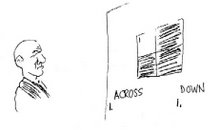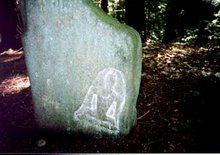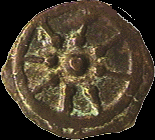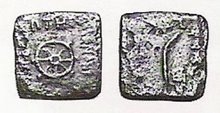Once upon a time, there was a culture that borrowed things. This culture borrowed objects, people, and stories. This culture shined the objects, reinvented the people, and localized the stories (folklore). This culture was the
everyculture, dating bback to the
last ice age of around 12,000 years ago. We were only saved from freezing by
Mammouth farts!
What has this to do with Ham Salad, you ask?
Well, the Buddhists borrowed from the Hindus (
Harrapan Culture). Many Mohenjo-Daro sculptures are meditating in the lotus position.

As you were previously told, "The Jewel is in the Lotus of the Heart." So, let us put the 'jewel' (Buddha) in the Lotus (flower).

Next (after counting the five semi-circles at the top of the Lotus Flower) we will substitute a sacred Buddhist fruit (pomegranate) for the Buddha and call it
Hamsa!
All that work was no work at all!
 Next (after counting the five semi-circles at the top of the Lotus Flower) we will substitute a sacred Buddhist fruit (pomegranate) for the Buddha and call it Hamsa!
Next (after counting the five semi-circles at the top of the Lotus Flower) we will substitute a sacred Buddhist fruit (pomegranate) for the Buddha and call it Hamsa!








